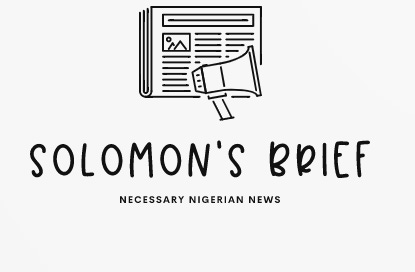Good morning.
Welcome to the Wednesday briefing. This newsletter keeps you updated with the latest news from Nigeria. Don’t forget to subscribe to receive it in your email before 7 am (WAT) every weekday.
Shi’ites killed in Abuja walk
The Nigerian state’s capacity for unbridled violence reared its head once again on Tuesday when members of the proscribed Islamic Movement of Nigeria (IMN), also known as Shi’ites, were attacked by police officers in Abuja while conducting an annual religious procession.
“The trek was in solidarity with the grandson of Prophet Muhammad,” one Shi’ite told the Foundation for Investigative Journalism. “Today, we came peacefully, and during the procession, they just appeared and started shooting live ammunition at us.”
At least, three Shi’ites were reportedly killed. Amnesty International put the casualty figure at eight.
The attack echoes the Zaria massacre of 2015, where about 348 Shi’ites were killed by the Nigerian Army and secretly buried in a mass grave.
Watch: A grisly viral video shows Nigerian security forces violently assaulting persons believed to be Shi’ites during Tuesday’s walk.
Response: Reacting to the Tuesday attack, the police denied killing any IMN member and said it had intervened because they were causing “unnecessary hardship to motorists” along the Abuja-Kubwa expressway.
Quote: "The miscreants attacked the security forces with petrol bombs, (and) weapons including stones, but were adequately rounded up by the security teams without any casualty," the police said in a statement.
Context: Shi’ites make up just a fraction of the large Muslim population in Nigeria, most of whom are Sunnis. The Shi’ites have long complained of discrimination and repression. IMN leader, Ibrahim El-Zakzaky, was only released from detention by the Kaduna State Government after years in prison over criminal charges including aiding and abetting homicide, unlawful assembly, and disruption of public peace.
Navy walks back officer’s statement
In a stunning reversal, the Navy on Tuesday disowned claims made by Commodore Jamila Abubakar that accused Chadian soldiers of selling arms illegally and hurting Nigeria’s national security.
Commodore Abubakar had made the claim while speaking at a public hearing organised by the House of Representatives Committee on National Security and Intelligence on Monday.
“ . . . each average Chadian soldier has 20 to 30 arms underneath his bed. When he is broke, he brings it out and sells it for $30, $20. I am here, I am standing here, and I am saying it,” Commodore Abubakar had said.
But Navy spokesperson Commodore Dahun Suleiman said Abubakar’s claims were “unauthorized, personal comments on the issue of transnational trafficking of small arms and light weapons.”
Context: The Chadian military has been key in fighting Boko Haram/ISWAP terrorists along the North-East corridor and it does make sense that Nigerian authorities don’t want a diplomatic row that could hamper joint military efforts. But one hopes Abubakar’s allegations are being taken seriously behind closed doors.
Reps pass Buhari’s budget plans
Like the Senate last week, the House of Representatives has passed the 2022–2024 Medium Term Expenditure Framework and Fiscal Strategy Paper as presented by President Muhammadu Buhari.
The lawmakers, unsurprisingly, also approved the President’s projected new borrowings of N4.89 trillion.
The MTEF lays the groundwork for the annual budget.
Some of the assumptions include pegging daily crude oil production at 1.88 million barrels per day), 2.23mbpd, and 2.22mbpd for 2022, 2023, and 2024 respectively.
The document also benchmarks the price of oil at $57 per barrel for 2022 and $55 for 2023 and 2024. And the exchange rate, according to the plan, was fixed at N410.15/$ until 2024.
One expert has described the assumptions in the MTEF document as “wishful thinking.”
What else is happening?
Oil and Gas: The Senate has asked international oil companies operating in the Niger Delta to relocate their headquarters from Lagos and Abuja to the South-South region.
NEITI: According to the Nigeria Extractive Industries Transparency Initiative, 77 oil companies owe the federal government N2.659 trillion, an amount that could fund 46 percent of Nigeria’s 2021 budget deficit of N5.6 trillion.
Corruption: The Federal High Court in Lagos will on October 15 hear all applications in respect of the Kogi State N20bn salary bailout account targeted by the EFCC for fraudulent activities.
#EndSARS: A forensic and ballistics expert hired by the Lagos state government to investigate the Lekki toll-gate shootings on October 20, 2020, has said live military-grade ammunition may have been discharged at some point, but by yet-unidentified-persons.
Medical strike: After delivering two ultimatums, the Joint Health Sector Unions (JOHESU) has asked the federal government to meets its demands or risk the closure of health facilities across the country.
Insecurity: Gunmen have abducted a retired Air Vice Marshal, Sikiru Smith, in the Ajah area of Lagos.
Media licensing: President Buhari has approved the establishment of 159 new radio and television stations across the country, according to the National Broadcasting Commission.
And that’s it for this morning. Catch you again tomorrow.





Why must the president still have to approve something as the running of new radio and TV stations? This colonial system sha.